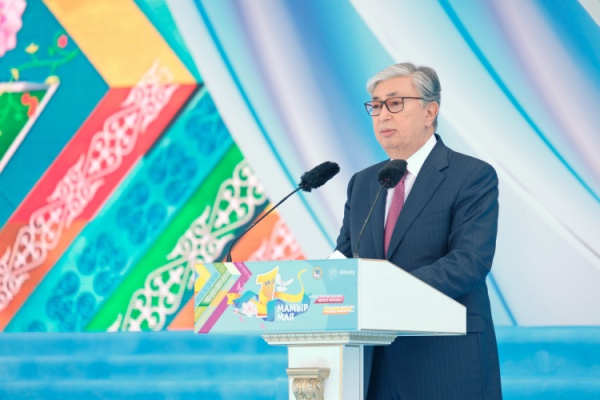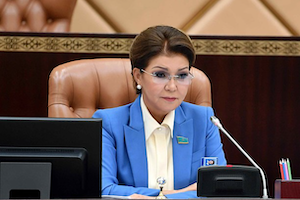Kazakhstan Resurrects Golden Horde in Political Messaging
By Dmitry Shlapentokh
April 24, 2024
Recently, Kazakhstan’s President Kassym-Jomart Tokayev delivered a public address wherein he underscored the significance of the Golden Horde, also known as Ulus Jochi, to Kazakhstan. He emphasized that Kazakhstan stands as the true descendant of the Golden Horde, equating its historical importance to that of the Roman Empire. Tokayev emphasized the importance of ensuring international recognition of this fact. Additionally, he announced the commissioning of a comprehensive multi-volume history of Kazakhstan, with a dedicated volume specifically focusing on Ulus Jochi and its pivotal role in shaping Kazakhstan’s history. Tokayev’s recent revival of this ideology suggests that Kazakhstan, in stark contrast to Russia and implicitly other post-Soviet states, espouses principles of tolerance and peaceful coexistence.
Dariga Nazarbayeva's Political Ambitions Effectively Ended by President Tokayev
By John C. K. Daly
June 18, 2020, the CACI Analyst
Few processes are more opaque than political succession in the post-Soviet space, which is usually dominated by elite cronyism infighting. The practice becomes particularly pronounced when the departing leadership dates from the Soviet era and attempts to put its stamp on the transition to the future. In general, the leadership seeks to ensure a peaceful transition of power, even if circumventing the wishes of the departing leader. The latest post-Soviet nation to transit the process is Kazakhstan, where on May 2, Kazakh President Kasym-Zhomart Tokayev, having succeeded Nazarbayev as president 14 months earlier, unexpectedly posted a single-sentence announcement that he had removed Dariga Nursultanovna Nazarbayeva from her position as Senate speaker.

Uzbekistan between a new president and the same nation: is it perestroika?
By Farkhod Tolipov
January 10th, 2017, The CACI Analyst
On December 4, 2016, three months after the death of Uzbekistan’s first President Islam Karimov, the country held new presidential elections. The Prime Minister and acting Interim President Shavkat Mirziyoev became president-elect by defeating three competitors in a highly asymmetric campaign characterized by the utilization of so-called administrative resources. Yet Mirziyoev’s campaign was also an explicit demonstration of new domestic and foreign political trends in post-Karimov Uzbekistan towards more liberal reforms. The campaign also revealed rising new expectations on the part of the Uzbek nation after a quarter-century of one-person rule.
China deepens its presence in Georgia via its “One Road, One Belt” initiative
By John C. K. Daly
December 12th, 2016, The CACI Analyst
On October 2, China and Georgia signed a preliminary free trade agreement (FTA), scheduled to take effect from the end of 2017, China’s first substantive FTA negotiations in Eurasia. The FTA’s 17 sections include trade goods, services, intellectual property rights and emerging issues like e-commerce, with the two parties agreeing to remove all tariffs for most of the two nations’ commodity trade, as well as pledging to open many service sector markets and improve bilateral trade laws while identifying key areas for enhancing cooperation.
Reasons for cautious optimism as post-election dust settles in Georgia
By George Tsereteli
December 8th, 2016, The CACI Analyst
Despite the negative political discourse, pessimism and apathy shown by a historically low voter turnout in Georgia’s parliamentary elections in October, there are tangible reasons to be cautiously optimistic. When compared to other post-Soviet nations, Georgia is far ahead in terms of many economic and governance indicators. The main question moving ahead is how the ruling Georgian Dream (GD) party will use its newly-gained supermajority in parliament. The hope is that the ruling party will lead in an inclusive and non-unilateral way – respecting opposition viewpoints – while enacting responsible policies and reforms.





